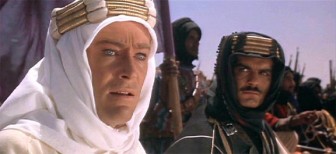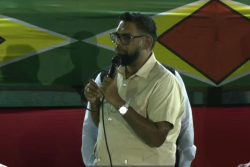BAGHDAD (Reuters) – It is a truism in warfare that has rarely seemed more relevant: there is only so much you can achieve from the air.
If Western forces want to get rid of Muammar Gaddafi, they need a force on the ground that can stand up to his security forces. So far, the rebels seem hardly suited to the task.
Reuters correspondents and others on the ground in eastern Libya describe a force with a lot of zeal but little or no organisation, few leaders, the wrong weapons and no training.
The international alliance enforcing a UN Security Council resolution on Libya has no mandate to build a rebel army, and Western leaders have little political support back home for such a task. But they may find they have no choice.
Experts say it is still early days: the potential of air power alone has not yet been fully exploited.
If the coalition has already put small special forces units on the ground in Libya, there are many military options left that fall short of directly providing Western military aid or leadership to the rebels.
“We’re a way off from the scenario of raising a Lawrence of Arabia army to drive across the desert and take Tripoli,” said British defence expert Tim Ripley, referring to the British officer who helped muster an Arab army in World War I.
But as Gaddafi’s troops enter cities where it is harder to pick them out from the sky, Western commanders may see no alternative to helping the rebels become the ground force they need to achieve their mission.
“The rebels so far continue to prove incapable of serving as a more appropriate (if still imperfect) tool themselves to do what air power cannot,” think tank Stratfor wrote.

“Without that, not only is the coalition left without the right tool for the job, Gaddafi’s anti-colonial narrative becomes more credible as the conflict drags on without resolution or an indigenous fighting force.”
Options
The first task of Western special forces teams in Libya would be to improve the air campaign by gathering intelligence.
There is a lot of basic information the allies still need.
“Right now it is very difficult to work out who to bomb,” said Ripley. “Both sides are driving around in exactly the same vehicles and from the air it is almost impossible to work out who are the rebels and who are the army.”
A second step would be to have special forces act as tactical controllers, guiding strikes as they did decisively in the US campaign that drove the Taliban out of Kabul in 2001.
This would be harder to conceal but could be explained publicly as part of the task of organising the air campaign, within the UN-authorised remit of preventing Gaddafi’s forces from threatening civilians.
Direct aid, advice or leadership to the rebels would be a further escalation, possibly going beyond the bounds of the UN Security Council resolution, and could test the strength of diplomatic alliances and political will back home.
One way to minimise the controversy of aiding the rebels might be to persuade Arab countries to take the lead. “Western countries are obviously concerned about being seen as too involved with the rebels, as this will further the narrative of Western ‘meddling’. So it makes more sense for America’s allies in the region — Egypt, Jordan, Saudi Arabia or Qatar — to focus on rebel support,” said Shadi Hamid, director of reserach at Brookings Doha Center.
Jordan, the United Arab Emirates and Oman are Arab countries whose militaries have experience training for such missions alongside US, British or French forces, Ripley said.
But persuading Arab countries to take on such a role may prove difficult, because of the fear of a backlash in the region or at home. So far, tiny Qatar is the only Arab country to commit to a military role in the campaign, sending planes.
If all else fails and the Western allies decide they must act themselves to aid the rebels, success is not certain. Some say the rebels are simply too disorganised for even a latter-day Lawrence of Arabia to make them a successful fighting force.
“The rebels have so far proven a rag-tag group incapable of holding the line against Gaddafi’s forces,” Stratfor wrote. “It is a problem of basic cohesion, organization, military proficiency, battlefield communications and leadership… So far, it appears that the extent of this problem is beyond anything even Western special operations forces teams trained to provide those things might possibly achieve anytime soon.”








